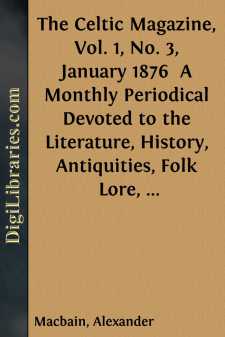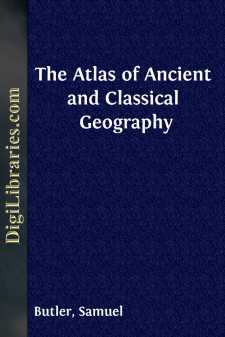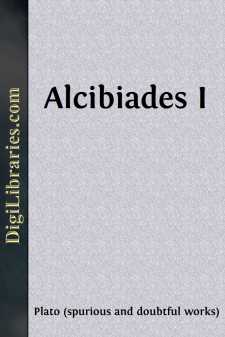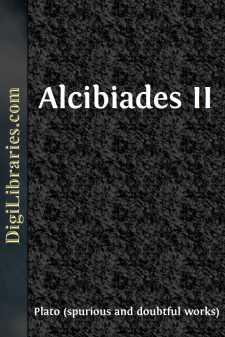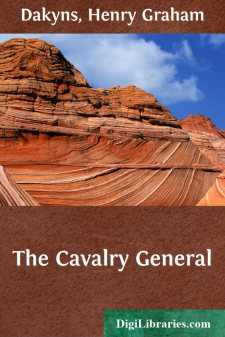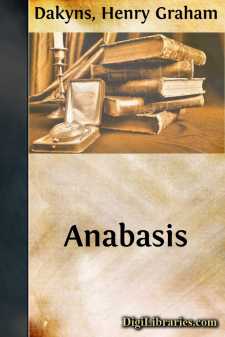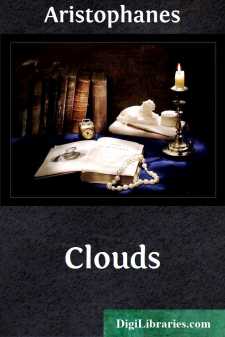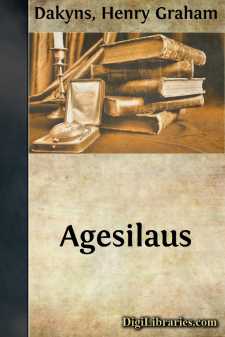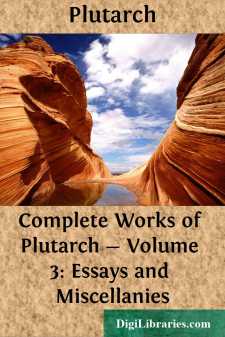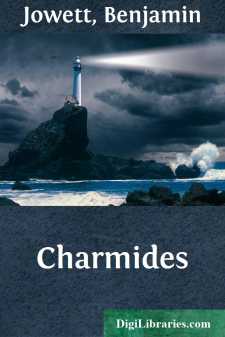Categories
- Antiques & Collectibles 13
- Architecture 36
- Art 48
- Bibles 22
- Biography & Autobiography 813
- Body, Mind & Spirit 142
- Business & Economics 28
- Children's Books 15
- Children's Fiction 12
- Computers 4
- Cooking 94
- Crafts & Hobbies 4
- Drama 346
- Education 46
- Family & Relationships 57
- Fiction 11828
- Games 19
- Gardening 17
- Health & Fitness 34
- History 1377
- House & Home 1
- Humor 147
- Juvenile Fiction 1873
- Juvenile Nonfiction 202
- Language Arts & Disciplines 88
- Law 16
- Literary Collections 686
- Literary Criticism 179
- Mathematics 13
- Medical 41
- Music 40
- Nature 179
- Non-Classifiable 1768
- Performing Arts 7
- Periodicals 1453
- Philosophy 64
- Photography 2
- Poetry 896
- Political Science 203
- Psychology 42
- Reference 154
- Religion 513
- Science 126
- Self-Help 84
- Social Science 81
- Sports & Recreation 34
- Study Aids 3
- Technology & Engineering 59
- Transportation 23
- Travel 463
- True Crime 29
Sort by:
THE STATE OF THE OSSIANIC CONTROVERSY. [Continued.] Mr Arnold in that handsome, but slightly ambiguous admission of his, that the Celts in their intellectual capacity come very near the secret of nature and of natural magic, does not seem to imply more in reality than that they have a subtler sense of certain natural affinities than their Anglo-Saxon brethren have; that they apprehend more surely when,...
more...
by:
Samuel Butler
INTRODUCTION THE accompanying Atlas has been included in this series for the greater convenience of the reader of “Grote's Greece” and other works that ask a continual reference to maps of ancient and classical geography. The disadvantage of having to turn perpetually from the text of a volume to a map at its end, or a few pages away, is often enough to prevent the effective use of the one in...
more...
APPENDIX I. It seems impossible to separate by any exact line the genuine writings of Plato from the spurious. The only external evidence to them which is of much value is that of Aristotle; for the Alexandrian catalogues of a century later include manifest forgeries. Even the value of the Aristotelian authority is a good deal impaired by the uncertainty concerning the date and authorship of the...
more...
APPENDIX II. The two dialogues which are translated in the second appendix are not mentioned by Aristotle, or by any early authority, and have no claim to be ascribed to Plato. They are examples of Platonic dialogues to be assigned probably to the second or third generation after Plato, when his writings were well known at Athens and Alexandria. They exhibit considerable originality, and are remarkable...
more...
Commander of Cavalry at AthensIYour first duty is to offer sacrifice, petitioning the gods to grant you such good gifts (2) as shall enable you in thought, word, and deed to discharge your office in the manner most acceptable to Heaven, and with fullest increase to yourself, and friends, and to the state at large of affection, glory, and wide usefulness. The goodwill of Heaven (3) so obtained, you...
more...
I. Darius and Parysatis had two sons: the elder was named Artaxerxes, and the younger Cyrus. Now, as Darius lay sick and felt that the end of life drew near, he wished both his sons to be with him. The elder, as it chanced, was already there, but Cyrus he must needs send for from the province over which he had made him satrap, having appointed him general moreover of all the forces that muster in the...
more...
by:
Aristophanes
Scene: The interior of a sleeping-apartment:Strepsiades, Phidippides, and two servants are in theirbeds; a small house is seen at a distance. Time:midnight. Strepsiades (sitting up in his bed). Ah me! Ah me! OKing Jupiter, of what a terrible length the nights are!Will it never be day? And yet long since I heard thecock. My domestics are snoring; but they would not havedone so heretofore! May you perish...
more...
I To write the praises of Agesilaus in language equalling his virtue and renown is, I know, no easy task; yet must it be essayed; since it were but an ill requital of pre-eminence, that, on the ground of his perfection, a good man should forfeit the tribute even of imperfect praise. As touching, therefore, the excellency of his birth, what weightier, what nobler testimony can be adduced than this one...
more...
by:
Plutarch
Epicurus's great confidant and familiar, Colotes, set forth a book with this title to it, that according to the tenets of the other philosophers it is impossible to live. Now what occurred to me then to say against him, in the defence of those philosophers, hath been already put into writing by me. But since upon breaking up of our lecture several things have happened to be spoken afterwards in...
more...
by:
Benjamin Jowett
INTRODUCTION. The subject of the Charmides is Temperance or (Greek), a peculiarly Greek notion, which may also be rendered Moderation (Compare Cic. Tusc. '(Greek), quam soleo equidem tum temperantiam, tum moderationem appellare, nonnunquam etiam modestiam.'), Modesty, Discretion, Wisdom, without completely exhausting by all these terms the various associations of the word. It may be described...
more...


